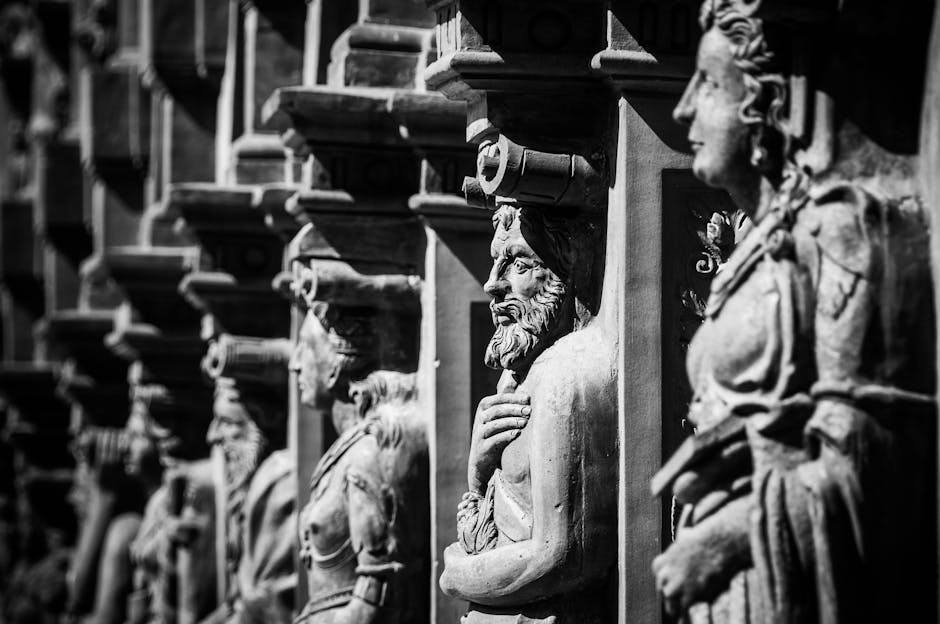History, the study of the past, shapes our present and illuminates potential futures, offering invaluable lessons from triumphs and failures. Understanding history provides context for current events and helps us navigate the complexities of the modern world. From ancient civilizations to groundbreaking inventions, history is a continuous narrative of human experience.
The Significance of Studying History
Studying history is vital for several reasons. It fosters critical thinking skills, encouraging us to analyze evidence and interpret different perspectives. Engaging with the past cultivates empathy, allowing us to understand the motivations and experiences of people from diverse backgrounds and eras.
Develops critical thinking Enhances understanding of cause and effect Promotes empathy and cultural awareness Provides context for current events
- Informs decision-making for the future
Furthermore, an appreciation for history helps us avoid repeating past mistakes and build a more just and equitable society. Learning about different cultures and societies broadens our horizons and challenges our assumptions. By examining the past, we can gain a deeper understanding of ourselves and our place in the world.
Ancient History: Foundations of Civilization
Ancient history, spanning from the dawn of human civilization to the fall of the Roman Empire, provides the foundation for much of our modern world. This period witnessed the rise and fall of powerful empires, the development of complex social structures, and the birth of groundbreaking innovations.
Mesopotamia: The Cradle of Civilization
Mesopotamia, located in modern-day Iraq, is often referred to as the “cradle of civilization.” It was here that humans first developed agriculture, writing, and organized government. The Sumerians, Babylonians, and Assyrians left behind a rich legacy of art, literature, and law. Their innovations in irrigation, mathematics, and astronomy laid the groundwork for future advancements.
Ancient Egypt: Pharaohs and Pyramids
Ancient Egypt, with its majestic pyramids and powerful pharaohs, remains one of the most fascinating civilizations in history. The Egyptians developed a complex system of hieroglyphic writing, built monumental temples and tombs, and made significant advances in medicine and mathematics. Their belief in the afterlife shaped their culture and inspired their artistic achievements.
Ancient Greece: Democracy and Philosophy
Ancient Greece, the birthplace of democracy and philosophy, profoundly influenced Western civilization. The Greeks developed innovative forms of government, produced groundbreaking works of literature and drama, and made significant contributions to mathematics, science, and philosophy. Thinkers like Socrates, Plato, and Aristotle shaped Western thought for centuries to come.
Ancient Rome: Empire and Law
Ancient Rome, one of the largest and most powerful empires in history, left an indelible mark on law, language, and architecture. The Romans built vast networks of roads and aqueducts, developed a sophisticated legal system, and spread their culture throughout Europe, North Africa, and the Middle East. The Roman Empire’s legacy continues to influence our world today.
Medieval History: A Time of Transition
Medieval history, often referred to as the Middle Ages, spans from the fall of the Roman Empire to the Renaissance. This period was characterized by political fragmentation, religious fervor, and significant cultural and technological developments.
The Rise of Feudalism
Following the collapse of the Roman Empire, Europe fragmented into numerous small kingdoms and principalities. Feudalism emerged as a dominant social and political system, based on land ownership and mutual obligations between lords and vassals. This decentralized system provided a degree of stability in a turbulent era.
The Crusades: Religious Wars
The Crusades were a series of religious wars launched by European Christians to reclaim the Holy Land from Muslim control. These conflicts had a profound impact on both Europe and the Middle East, leading to increased trade, cultural exchange, and religious tensions.
The Black Death: A Devastating Plague
The Black Death, a devastating pandemic that swept through Europe in the mid-14th century, killed an estimated 30-60% of the population. This catastrophe had profound social, economic, and political consequences, leading to labor shortages, social unrest, and a decline in feudalism.
Modern History: Revolutions and Transformations
Modern history, beginning with the Renaissance and continuing to the present day, has been marked by rapid technological advancements, political revolutions, and globalization. This era has witnessed unprecedented social, economic, and cultural transformations.
The Renaissance: A Rebirth of Art and Learning
The Renaissance, a period of renewed interest in classical art, literature, and philosophy, marked a transition from the Middle Ages to the modern era. This cultural movement originated in Italy and spread throughout Europe, fostering creativity, innovation, and a spirit of inquiry.
The Age of Exploration: Discovering New Worlds
The Age of Exploration, driven by a desire for wealth, power, and religious conversion, led to the discovery of new continents and the establishment of global trade networks. European explorers like Christopher Columbus and Ferdinand Magellan charted new territories and opened up new avenues for trade and colonization.
The Industrial Revolution: Technological Advancements
The Industrial Revolution, beginning in the late 18th century, transformed economies and societies around the world. New technologies, such as the steam engine and the power loom, led to mass production, urbanization, and unprecedented economic growth. This period also witnessed the rise of capitalism and the emergence of new social classes.
The World Wars: Global Conflicts
The 20th century was marked by two devastating world wars that reshaped the global political landscape. These conflicts resulted in millions of casualties and led to the creation of new international organizations, such as the United Nations, aimed at preventing future wars.
Additional Sources and References
The Importance of Preserving History
Preserving history is crucial for ensuring that future generations can learn from the past. Museums, archives, and historical societies play a vital role in collecting, preserving, and interpreting historical artifacts and documents. These institutions provide valuable resources for researchers, educators, and the general public.
Historical Preservation: Protecting Our Heritage
Historical preservation efforts aim to protect and preserve historical sites, buildings, and artifacts for future generations. These efforts often involve restoring historical structures, documenting historical events, and educating the public about the importance of preserving our heritage.
Digital History: Engaging with the Past Online
Digital history utilizes technology to make historical information more accessible and engaging. Online archives, virtual museums, and interactive timelines provide new ways for people to explore the past and connect with history.
Oral History: Capturing Personal Narratives
Oral history involves collecting and preserving personal narratives and memories. These accounts provide valuable insights into the lives and experiences of ordinary people, enriching our understanding of the past. Oral history projects can document a wide range of topics, from personal experiences during wartime to the history of local communities.
In conclusion, history is not just a collection of dates and events; it is a dynamic and ever-evolving narrative that shapes our understanding of the world. By studying history, we can gain valuable insights into the human condition, learn from past mistakes, and build a more informed and equitable future. Embrace the journey through history and discover the richness and complexity of our shared past. Explore historical sites near you and deepen your understanding of the world!






